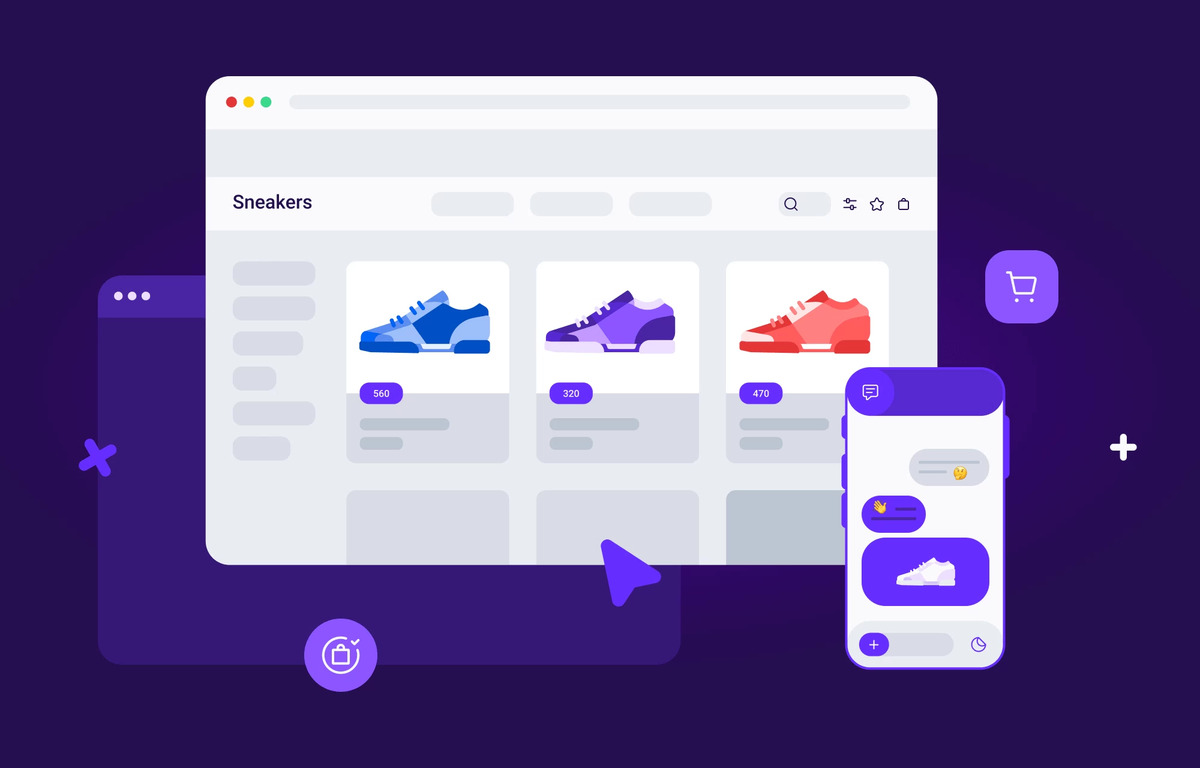In the ever-evolving world of e-commerce, data is king. For Shopify store owners, leveraging the right analytics tools can mean the difference between stagnation and explosive growth. Let's explore some of the most powerful options available in 2024 that can help you unlock your store's full potential.
The Importance of Data-Driven Decision Making
Before diving into specific tools, it's crucial to understand why analytics matter. In today's competitive online marketplace, gut feelings and guesswork simply won't cut it. By harnessing the power of data, you can:
- Understand your customers better
- Optimize your marketing spend
- Identify top-performing products
- Streamline your operations
- Stay ahead of emerging trends
Choosing Your Analytics Arsenal
When selecting analytics tools for your Shopify store, consider these key factors:
- Data accuracy and reliability
- Integration capabilities
- Customization options
- Scalability
- User-friendliness
- Customer support and resources
Remember, a beautiful interface means nothing if the underlying data is flawed. Prioritize tools that offer proven methodologies and precise insights.
Top Contenders for Your Analytics Toolkit
Shopify Analytics: The Built-in Powerhouse
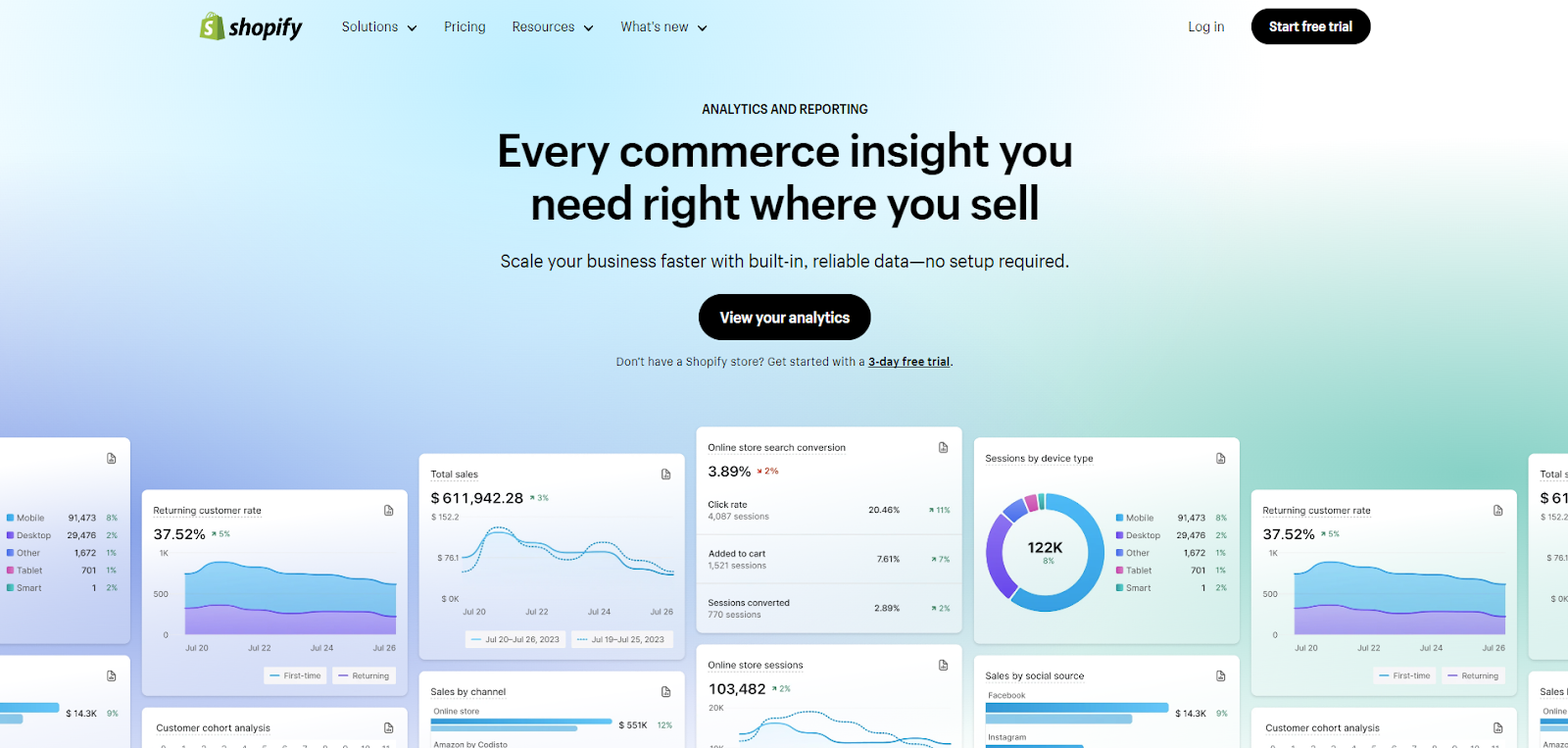
Pros:
- Seamless integration with your store
- Real-time data updates
- Comprehensive financial reporting
Cons:
- Limited customization on lower-tier plans
- May lack advanced features for power users
Best for: Shopify store owners seeking a solid foundation without additional complexity.
Rick.ai: The E-commerce Specialist
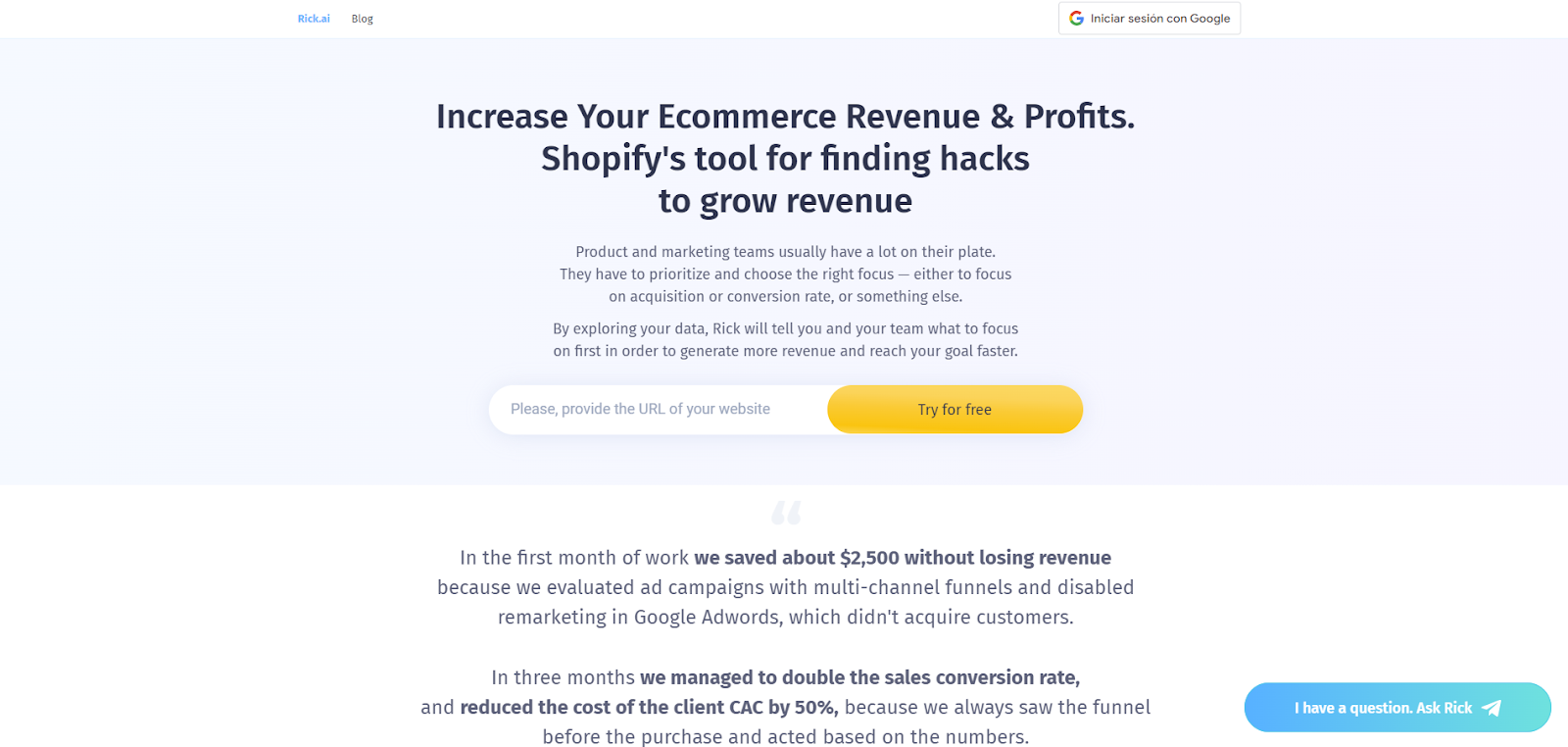
Pros:
- Tailored specifically for Shopify
- Advanced customer segmentation
- Unique "journey fixing" algorithms
Cons:
- Primarily table-based analytics
- Fewer integrations than some competitors
Best for: Store owners who prioritize actionable insights and dedicated support.
Google Analytics: The Versatile Veteran

Pros:
- Extensive feature set
- Integrates with other Google services
- Free for most users
Cons:
- Steep learning curve
- Requires manual setup for advanced e-commerce tracking
Best for: Tech-savvy marketers comfortable with data complexity.
Triple Whale: The All-in-One Dashboard
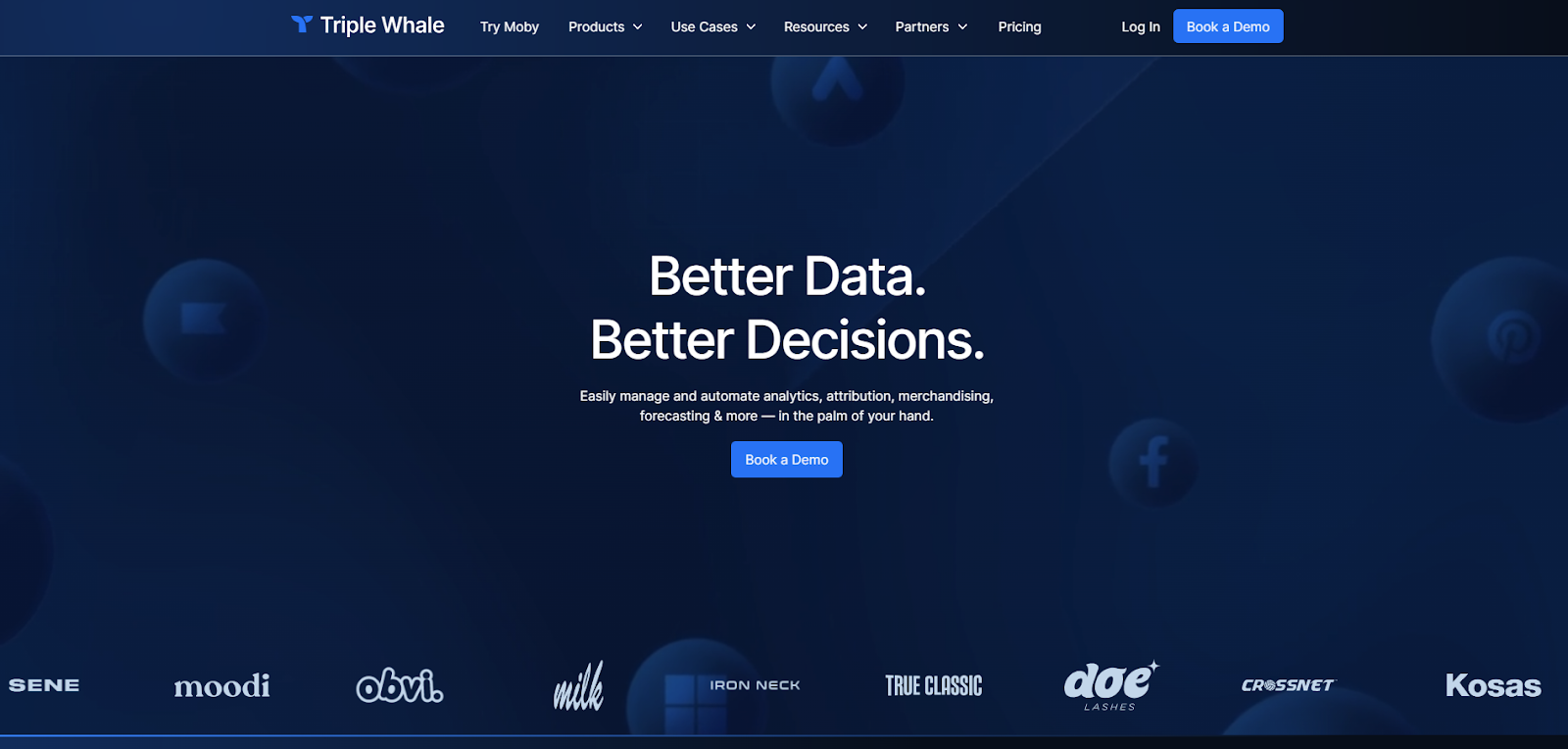
Pros:
- Centralizes data from multiple channels
- Detailed customer journey tracking
- Customizable reporting options
Cons:
- Higher price point
- May require time to master all features
Best for: Multi-channel sellers seeking a unified view of their business.
Polar Analytics: The Real-Time Insights Engine
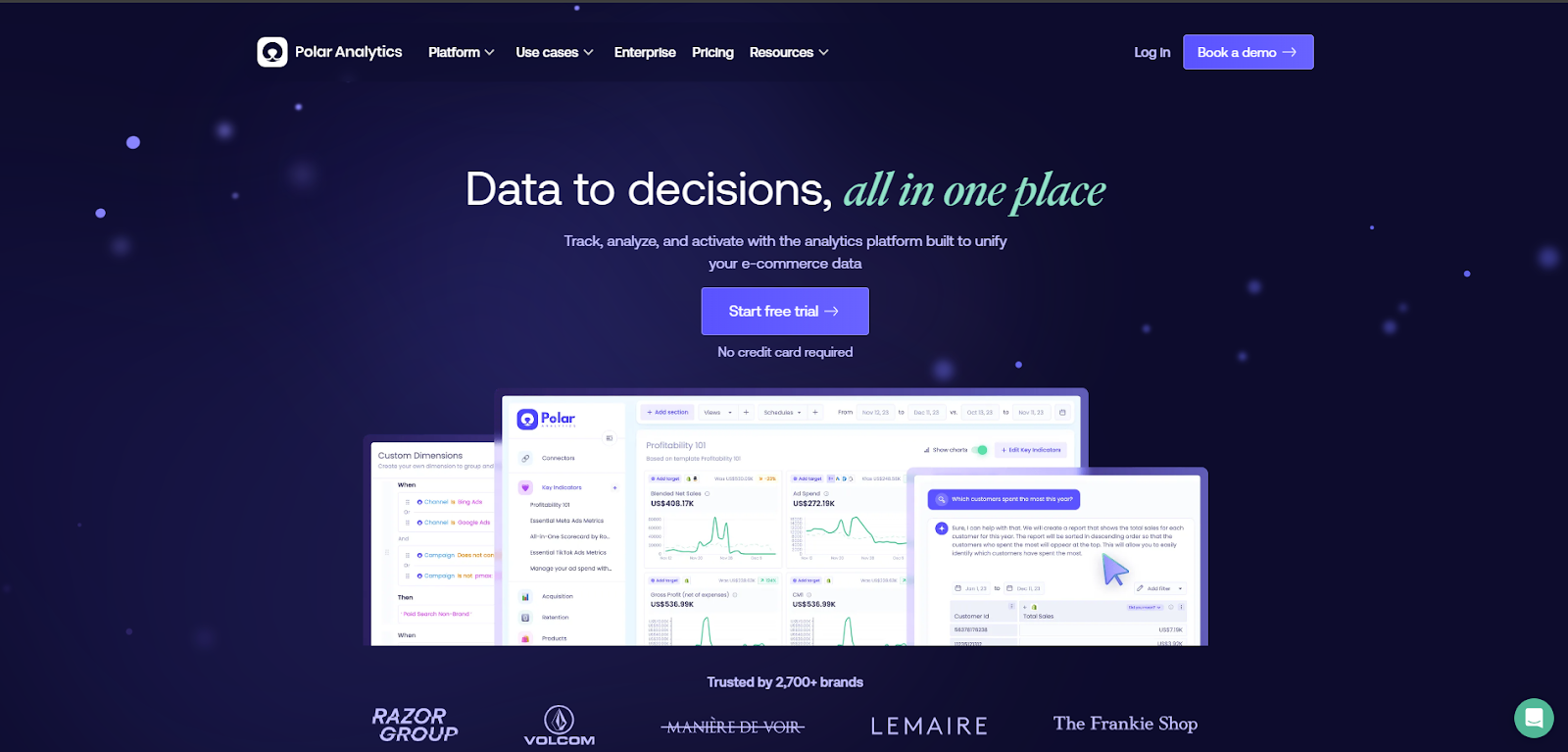
Pros:
- User-friendly interface
- Real-time data and automated alerts
- Consolidates multiple marketing channels
Cons:
- Limited graphical visualizations
- Premium features come at a higher cost
Best for: E-commerce businesses prioritizing up-to-the-minute insights and custom reporting.
Implementing Your Analytics Strategy
Once you've chosen your tools, follow these steps to maximize their impact:
- Set clear goals and KPIs
- Ensure proper integration and setup
- Train your team on tool usage
- Regularly review and act on insights
- Continuously refine your approach
Remember, the most powerful analytics tool is the one you actually use. Start with the basics and gradually expand your data capabilities as your comfort and needs grow.
Conclusion: Data-Driven Success Awaits
In the fast-paced world of e-commerce, the right analytics tools can be your secret weapon. By choosing solutions that align with your business needs, provide accurate data, and offer actionable insights, you'll be well-equipped to make informed decisions that drive growth.
Whether you opt for the simplicity of Shopify Analytics, the specialized approach of Rick.ai, or the comprehensive capabilities of Google Analytics, the key is to let data guide your path forward. Embrace the power of analytics, and watch your Shopify store thrive in 2024 and beyond.
Remember, while analytics tools are crucial, they're just one piece of the e-commerce puzzle. To create a truly outstanding customer experience, consider implementing other technologies as well. For instance, chatbots can significantly improve customer service and engagement. Additionally, integrating a cloud contact center solution like Voximplant Kit can enhance your customer support capabilities, providing seamless omnichannel communication. Check out Top 10 Chatbot Builders in 2024 to learn more about enhancing your store's capabilities.

